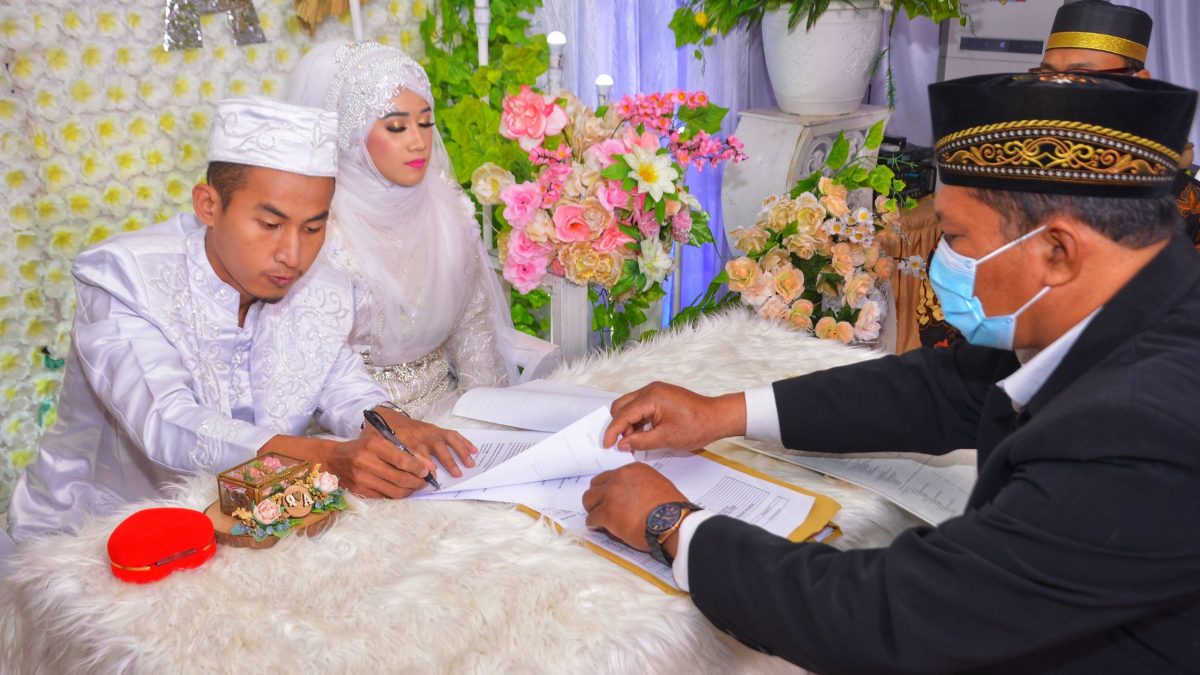10 Signs of a Disrespecting Husband

Rules in Muslim Marriage serve as a guide for individuals looking for a lifelong partner. These rules are based on mutual respect, shared goals, and conflict resolution. The principles of Muslim marriage support the marriage by promoting an atmosphere of affection, sympathy, and spiritual growth. In this blog, we will discover the Muslim marriage rules and regulations and their importance.
Muslim marriages are managed by a set of rules deeply rooted in Islamic teachings. This inclusive guide explores the important aspects of Muslim marriages with special emphasis on the conditions, ceremonies, and responsibilities involved.
In Islam, marriage is considered a sacred bond that promotes companionship, love, and the establishment of a family. It is viewed as a means of fulfilling half religious faith and as a protection against sinful behavior like immodesty.
Consent of the Parties: A Muslim marriage is only valid when both parties willingly agree to enter into the marital contract.
Presence of Witnesses: Two adult and sane witnesses must be present during the marriage ceremony to authenticate the union.
Mahr (Dower) Agreement: The groom must provide a specified amount of Mahr to the bride which represents the commitment of a groom to fulfill the financial rights of a bride.
Guardian’s Approval (Wali): The bride should have the approval of her guardian (Wali), typically her father or another eligible male relative, for the marriage to be valid.
Legal Capacity: Both the bride and groom must be of legal age and possess the mental and physical capacity to understand the implications of marriage.
Close Blood Relatives (Mahram): Marriage is not allowed between individuals who have close blood relationships, such as parents and children, siblings (full or half), and between a person and their grandparents or grandchildren.
Adoption: Islam recognizes the importance of maintaining lineage and prohibits marriage between an adopted child and their adoptive parents or between siblings in an adoptive family.
Temporary Marriages (Mut’ah): Temporary or fixed-term marriages, known as Mut’ah, are considered invalid in Islam. Permanent and committed marriages are encouraged.
Polyandry: Islam prohibits a woman from having more than one husband at the same time. While Polygyny in which a man having more than one wife is allowed under certain circumstances described in the Quran.
Read Also : Significance for Marriage Counseling for Muslism
Terms and Conditions: Couples can include specific terms in their nuptial contract that provide clarity about rights, responsibilities, and expectations.
Responsibilities of Spouses: The contract outlines the financial and emotional responsibilities each spouse must uphold throughout the marriage.
Simplicity and Modesty: Islamic weddings encourage simplicity and modesty which represents the importance of avoiding overindulgence.
Sunnah Practices: Following the traditions of the Prophet Muhammad, such as the recitation of specific prayers and the exchange of vows adds spiritual significance to the ceremony.
Feast and Celebration: The wedding ceremony is often followed by a celebratory meal or reception, where family and friends come together to rejoice in the union of the couple.
Mutual Respect: Islam emphasizes the importance of mutual respect and kindness between spouses as the foundation of a successful marriage.
Financial Responsibilities: While the husband is responsible for providing financial support, the wife has the right to manage her wealth.
Marital Intimacy and Emotional Support: Marital intimacy is a shared right that promotes emotional closeness. The wife supports the husband emotionally, ensuring a harmonious marriage.
Kindness, Protection, and Cooperation: The husband must treat his wife with kindness and protection and the wife should also respect the differences of opinion of his husband.
Adherence to Islamic Values: Cooperation in duties and adherence to Islamic values form the foundation for a balanced and fulfilling marital relationship.
Communication: Open and honest communication is necessary for resolving difficult conflicts and maintaining a healthy relationship.
Seeking Mediation: In case of arguments, guidance from family members or religious leaders is encouraged for a fair resolution.
The Concept of Talaq (Divorce): Divorce is permitted in Islam as a last resort and it follows a specific procedure to ensure fairness and justice.
Read Also : Why I am Still Single?
Understanding the rules in Muslim Marriage is essential for building a strong and permanent union. By adhering to Islamic principles, couples can encourage a relationship grounded in faith, respect, and love.
A: Yes, Islam grants women the right to initiate divorce under specific circumstances, such as cruelty or neglect.
A: The Mahr symbolizes the financial commitment of the husband to the wife and serves as a form of security for her.
A: Islam allows polygamy with strict conditions, including equal treatment of wives and the ability to provide for each wife financially.